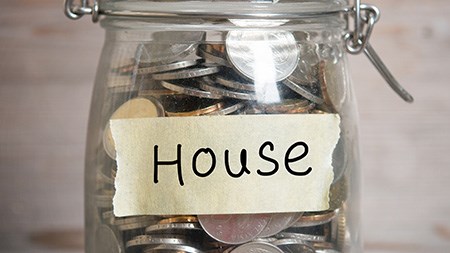Are you looking to purchase your first property? We'll take you through the home buying process and highlight what is important as a first time home buyer.
Step 1: Deposit
Start saving for a deposit and the registration and transfer costs. In the last few years, the banks have all changed their home loan lending policies. Unless you are a first time home buyer and comply with certain requirements laid down by the bank, you can no longer obtain a loan equivalent to 108% of the property’s value. In fact, in certain instances, you may only qualify for a loan equivalent to as little as 60% of the purchase price and the rest (including the registration and transfer costs) will have to be paid out of your pocket.
Step 2: Sell your old property
If you need to sell your current property, in order to buy another, it may be a good idea to put your property on the market first. Speak to estate agents operating in your area to advise you on a selling price, and also do your own homework as to what similar properties are selling for in your area.
Step 3: Budget
Do a comprehensive budgeting exercise to see how much you can afford for monthly home loan repayments. You can make use of the Private Property Affordability Calculator to help you with your budgeting exercise.
Step 4: Clean Credit Report
Obtain a copy of your credit report from the major credit bureaux and review the information. If there are errors or matters that need to be addressed, it is advisable to sort it out before you apply for a home loan. If you know that there are a few blemishes on your credit record, and you have been making an effort to clean up, let your bank know what they are, why they are there, and what you are doing to sort them out.
As a first time home buyer, lenders will look at your credit and financial situation to determine how likely you will be to pay back the home loan. If you suffered unexpected circumstances that were out of the ordinary, like a loss of a job or extensive medical bills, let the bank know so that they understand that it is not likely to happen again in the future.
READ MORE: Best way to buy a house: tips for first time buyers
Step 5: Tax duties
Make sure all your tax-affairs are in order. It will not hurt to just make an enquiry to SARS, to check whether all your tax-affairs are up to date. Your new property will not be registered in your name if you have any outstanding SARS matters.
Step 6:Home loan enquiry
Pay a visit to your bank, and ask a home loan consultant to assist you in finding out what amount you may qualify for, in terms of a home loan.
Step 7:House hunting
Do your homework before you house-hunt. Decide what kind of home will suit your needs. Think about security, the size of your family (or of your future family size), the suitability for your pets, and so on. You should also consider the location in terms of travelling distance to work, schools, and so on. Enquire about affordability of the schools, rates and taxes, levies and other expenses/facilities in the area.
Step 8: Ask the relevant questions
While house-hunting ask the estate agent and/or owner as many questions as possible about the property.
Step 9: Understand the sales agreement
When the time comes to sign an offer to purchase, make sure you understand everything written in the contract. Do not sign a contract if you are unclear about anything. Rather ask advice from someone you trust.
Step 10: Apply for a home loan
You will need to apply for a home loan. Once you have completed the home loan application forms, your bank will process the application and do the necessary credit checks and assessments. If everything is approved, you will receive a letter of approval giving the conditions and benefits of the agreement.
Step 11: Complete all steps in the home transfer process
Conveyancing attorneys will now register your home loan and transfer the property into your name. The previous owner of the property will be paid and you will become a home owner.
To recap
What is important as a first time home buyer in South Africa?
- Start saving for a deposit and the registration and transfer costs
- Use an affordability calculator to determine if you’ll be able to settle all expenses
- Review your credit report and clear up any errors
- Sort out all tax affairs with SARS
- Find out if you qualify for a home loan at your bank
- Decide what kind of home will suit your needs
- When house hunting, ask all the necessary questions
- Make sure you understand the stipulations in your contract
- Apply for a home loan
- Complete all steps in the property transfer process
Ready to become a first time home buyer? Private Property makes the house hunting experience easier by offering a wide range of properties for every taste and need. To see what we currently have on offer, browse the list of properties for sale.




